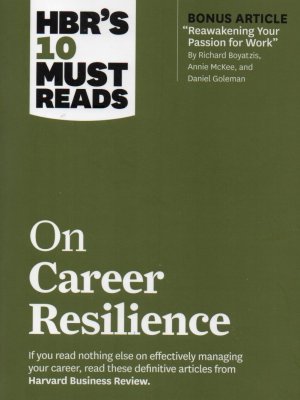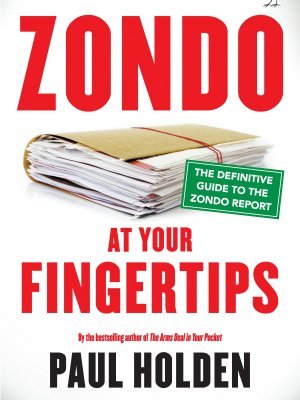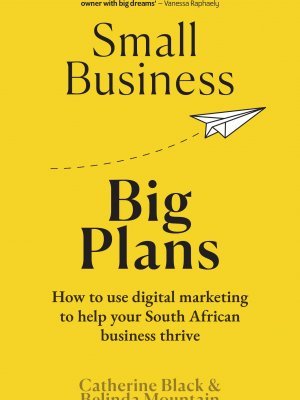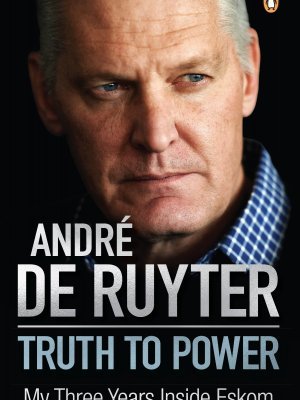Small Business, Big Plans: How to Use Digital Marketing to Help Your South African Business Thrive
Catherine Black & Belinda Mountain
Kwela – R330
This is no substitute for a full-on course at GIBS, but if that’s what you’re doing, you will find this a very useful addition to your library. Catherine Black and Belinda Mountain are the co-founders of South African digital agency Black Mountain and they’ve targeted this book firmly at the small business owner who probably needs guiding through the maze of digital marketing. Its subtitle says it all: How to use digital marketing to help your South African business thrive.
On one level, much of it is basic marketing: define your target market, lock down your USPs, decide whether you’re offering a product or a service, and so on. OK, that’s relatively straightforward. But then comes digital strategy. Do you need a website and, if so, what should it look like? How should it function? Is writing copy for digital different from other marketing collateral and, if so, how? Should you use social media – and does that mean Facebook, Twitter, LinkedIn, or even Instagram or TikTok? And what exactly is search engine optimisation?
Black and Mountain lead you through these questions in a clear, logical fashion but don’t be fooled into thinking that this will make your journey easier. You’re still going to have think long and hard about where your business is going, how it’s going to get there and what resources you’ll need along the way. You won’t be able to do absolutely everything they recommend or discuss, because as a small business owner you won’t have the funds, but at least you’ll have a clear roadmap and plenty of easy-to-follow signposts to help you make those all-important decisions
This one gets a “highly recommended” tag.
Truth to Power
André de Ruyter
Penguin – R340
This is a book that has already received a vast amount of publicity. It shot straight to the top of the non-fiction bestseller list and immediately went into reprint. Its publisher, Penguin, was forced to issue stern warnings to internet users about not passing on pirated PDF copies.
By now, you’ll be familiar with many of its assertions. The cabinet minister responsible for the power utility, Pravin Gordhan, interferes in the business in a way that he shouldn’t. Crime syndicates are looting Eskom. The syndicates trace all the way up to two unnamed members of the Ramaphosa cabinet. We also know that since De Ruyter’s explosive pre-publication interview with eNCA and then the publication of this book, not a lot has happened. No “big fish” has been arrested and we still suffer from load-shedding.
But what has not been given too much attention is the core business problem that lies at the heart of this book. De Ruyter was appointed to stop the rot at Eskom and he failed. A company brings in a new CEO to sort out the mess and restore profitability. When he or she doesn’t accomplish that task – for whatever reason – the exit door is opened. After De Ruyter’s three years at the helm of Eskom, the supply of electricity to South Africa was worse, not better.
In that sense, Truth to Power, despite its revelations and slightly breathless prose, is a list of excuses. To be honest, I found it very hard to read. You might argue that he faced an impossible task, a white man embroiled in the corruption and political shenanigans of the ANC. None of that was a secret, though, when he took the job.
It’s like coaching the Springboks. There are no secrets or mystery: if you win, you’re a hero. If you lose, out you go.
HBR’S 10 Must Reads: On Career Resilience
Various authors
Harvard Business Review Press – R695
I’ve been reading and researching quite a bit lately about resilience. It’s clear that both locally and internationally the future is very uncertain: The Russian war in Ukraine, galloping inflation, tension between China and America, especially over Taiwan. No-one knows how any of those things will turn out. Here, it’s about load-shedding, the collapse of Transnet, massive unemployment and social unrest, dreadful education, poor service delivery and next year’s election. All are equally alarming although the outcomes are perhaps slightly easier to predict.
A great deal has been written on resilience; it even has its own specialised field called resilience theory. But it has become clear to me that to be truly resilient an individual needs fitness in three key areas: mental, physical and financial. The same applies to a company. Financial fitness speaks for itself, while we can equate operational excellence to physical fitness, and a clear strategy allied to a healthy culture takes the place of mental fitness.
I was helped along the way by the discovery of another in the excellent series HBR’s 10 Must Reads – each one a collection of pertinent articles from Harvard Business Review. This one, On Career Resilience, is focused more on the individual than companies, but there it contains a wealth of knowledge.
The opening piece, “Managing Oneself” by legendary business guru Peter Drucker, is alone worth the cover price, but there several others that are truly excellent, including “How to Stay Stuck in the Wrong Career” by Herminia Ibarra, and “Reawakening Your Passion for Work” by Richard Boyatzis, Annie McKee, and Daniel Goleman.
If you’re also worried about the uncertainty, or maybe just having a tough time at work, you should find yourself a copy of On Career Resilience.
Zondo At Your Fingertips
Paul Holden
Jacana – R380
Paul Holden’s new book claims to be “the definitive guide to the Zondo Report” and I’m happy to state that’s accurate. Holden walks us through the report of the Zondo Commission on State Capture in some detail, but not so much that the material becomes impenetrable or dense. As such, he has done researchers, politicians, journalists and even future generations a great service.
Think about this: the Commission sat for more than four years and held more than 400 days of hearings. It produced 75 000 pages of transcripts and reviewed 1.73 million pages of documentary evidence. These are figures from Holden’s introduction, but imagine trying to wade through that lot! It also cost the country a billion rand – yet here we have it, condensed into a single 500-page volume.
Three key factors emerge. First, you now not only have “Zondo” at your fingertips, as the title implies, but you also have state capture at your fingertips. Can’t remember who said what about corruption at SAA? It’s all there. The capture of Sars? Denel? Prasa? Bosasa? Eskom? Transnet? And these are just some of the many names in Holden’s table of contents.
The second is to emphasise the massive and pervasive extent of state capture. It becomes a case of just what wasn’t touched by the Guptas and their cronies. Nor should you forget that Zondo barely touched on corruption at either provincial or municipal level.
Third, and perhaps most important, is that so few of the main perpetrators have yet been brought to justice. True, Brian Molefe and Anoj Singh, latterly of both Transnet and Eskom, and a number of others, including another ex-Transnet CEO, Siyabonga Gama, have been arrested, although their trial has yet to get underway. Many other “very big fish” are still out there. Read Zondo At Your Fingertips and you’ll find out exactly who they are and what they did.









